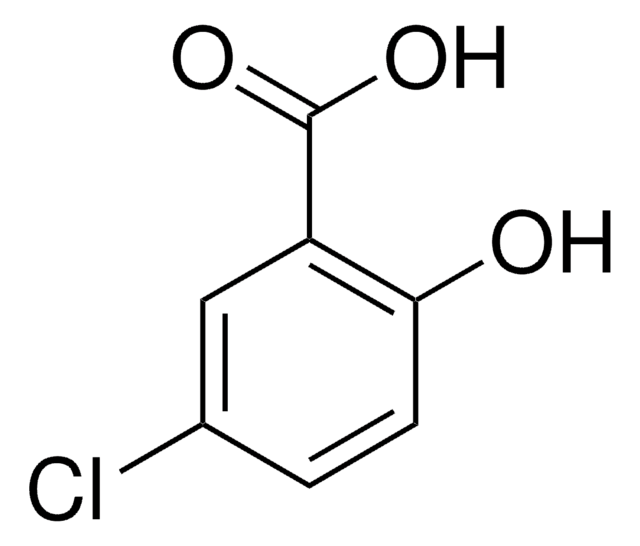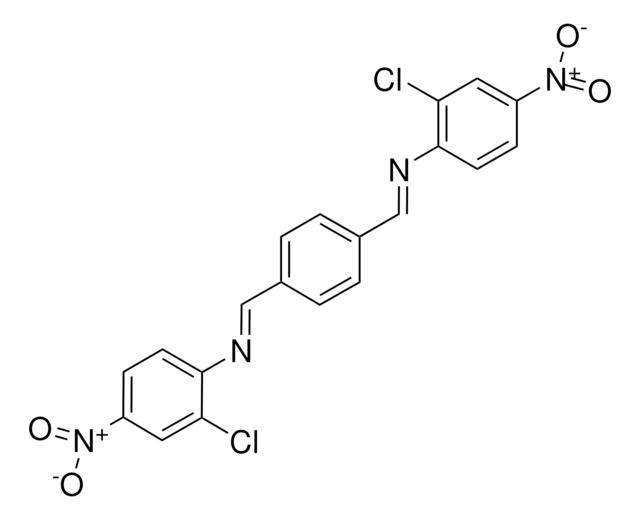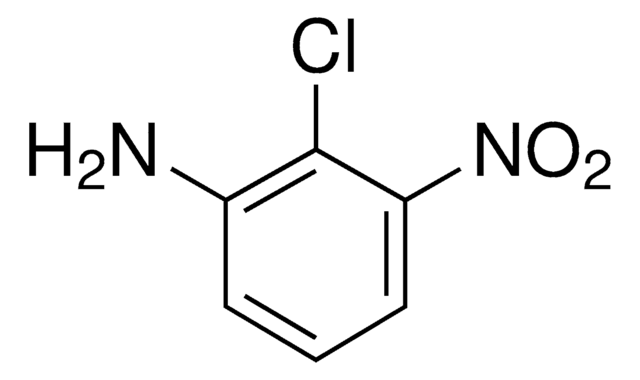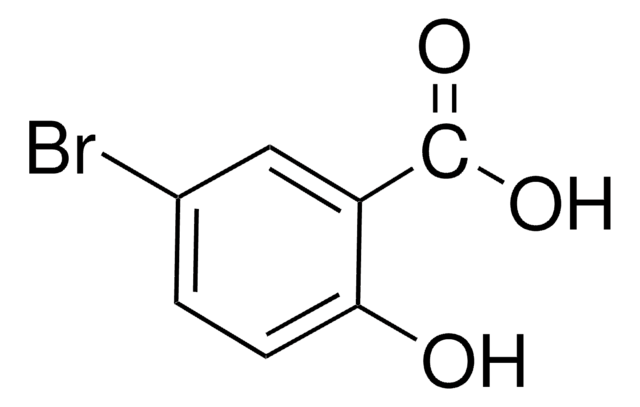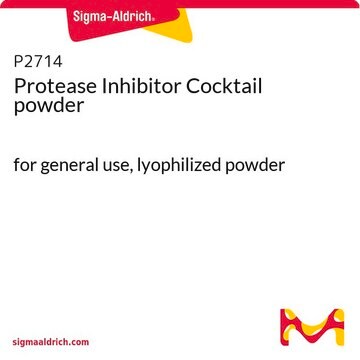101656
2-Chloro-4-nitroaniline
99%
Synonym(s):
1-Amino-2-chloro-4-nitrobenzene
Sign Into View Organizational & Contract Pricing
All Photos(1)
About This Item
Linear Formula:
ClC6H3(NO2)NH2
CAS Number:
Molecular Weight:
172.57
Beilstein:
638657
EC Number:
MDL number:
UNSPSC Code:
12352100
PubChem Substance ID:
NACRES:
NA.22
Recommended Products
Quality Level
Assay
99%
autoignition temp.
971 °F
mp
105-108 °C (lit.)
SMILES string
Nc1ccc(cc1Cl)[N+]([O-])=O
InChI
1S/C6H5ClN2O2/c7-5-3-4(9(10)11)1-2-6(5)8/h1-3H,8H2
InChI key
LOCWBQIWHWIRGN-UHFFFAOYSA-N
Looking for similar products? Visit Product Comparison Guide
Signal Word
Warning
Hazard Statements
Precautionary Statements
Hazard Classifications
Acute Tox. 4 Oral - Aquatic Chronic 2
Storage Class Code
6.1C - Combustible acute toxic Cat.3 / toxic compounds or compounds which causing chronic effects
WGK
WGK 2
Flash Point(F)
379.4 °F - closed cup
Flash Point(C)
193 °C - closed cup
Personal Protective Equipment
dust mask type N95 (US), Eyeshields, Gloves
Choose from one of the most recent versions:
Already Own This Product?
Find documentation for the products that you have recently purchased in the Document Library.
Customers Also Viewed
Thai Ha Tran et al.
Chemosphere, 201, 425-431 (2018-03-13)
The manganese oxide birnessite adsorbed and catalyzed the transformation of the anthelminthic drug niclosamide (NIS) into 2-chloro-4-nitroaniline (CNA) and 5-chlorosalicylic acid (CSA) at acidic pH. The adsorption of NIS was fitted using a linear isotherm for all conditions and reaction
J Borcherding et al.
Archives of environmental contamination and toxicology, 40(4), 497-504 (2001-08-30)
The Dreissena-Monitor is a biological early warning system for the continuous monitoring of river water quality, based on the valve movements of two groups of 42 zebra mussels (Dreissena polymorpha). Laboratory experiments with Cd, PCP, and 2-chloro-4-nitro-aniline were conducted in
J J Espinosa-Aguirre et al.
Mutation research, 264(3), 139-145 (1991-11-01)
Niclosamide is an anti-helminthic drug susceptible to being metabolized into a bacterial mutagen by the action of enzymes present in the S9 activation mixture. Additional results from genotoxic studies in rodents and humans suggest that the drug is absorbed from
Jimmy Murillo-Gelvez et al.
Environmental science & technology, 53(10), 5816-5827 (2019-05-01)
Nitroaromatic compounds (NACs) are a class of prevalent contaminants. Abiotic reduction is an important fate process that initiates NAC degradation in the environment. Many linear free energy relationship (LFER) models have been developed to predict NAC reduction rates. Almost all
D Cottalasso et al.
La Medicina del lavoro, 82(3), 253-260 (1991-05-01)
The toxicity of 4-chloro-2-nitroaniline (4C2NA) and 2-chloro-4-nitroaniline (2C4NA) was investigated on isolated rat hepatocytes following 1-3 hours of exposure to 0.2 and/or 2 mM of these xenobiotics. The higher of the two concentrations appeared to induce a statistically significant loss
Our team of scientists has experience in all areas of research including Life Science, Material Science, Chemical Synthesis, Chromatography, Analytical and many others.
Contact Technical Service